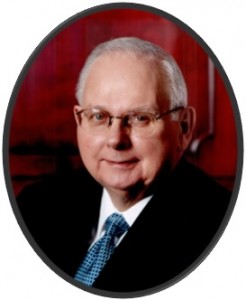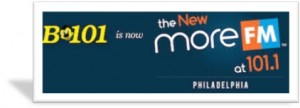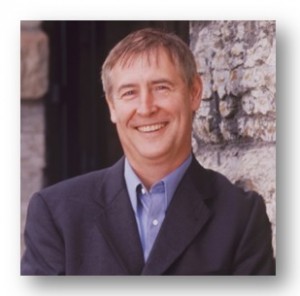There’s no doubt that deregulation forever changed the radio industry. Multitudes of operators who once owned stations in markets big and small sold their properties and left the industry behind.
But not everyone is gone. One of the last remaining independent, major market broadcasters is Jerry Lee, owner of WBEB in Philadelphia. A stand-alone signal, WBEB has more than held off the competition. Under his guidance it has thrived, generally sitting at or near the top of the ratings rankers year after year.
Jerry Lee just might be “the most innovative man in the world of radio.”
 He has always been focused on innovation and the future. Jerry has researched and marketed his station – and radio – for decades, thinking about things that many broadcasters either take for granted or rarely consider. From the quality of radio advertising to how consumers respond to commercials, Jerry has been at the forefront of urging the industry to do better in between the music. He takes a disciplined approach to understanding his audience and marketing his brand – year in and year out.
He has always been focused on innovation and the future. Jerry has researched and marketed his station – and radio – for decades, thinking about things that many broadcasters either take for granted or rarely consider. From the quality of radio advertising to how consumers respond to commercials, Jerry has been at the forefront of urging the industry to do better in between the music. He takes a disciplined approach to understanding his audience and marketing his brand – year in and year out.
Jerry has been an active member of the radio community, participating at one time or another on almost every board or advisory committee of note. He also is involved with a wide range of philanthropic projects in the Philadelphia area. Jerry is always brimming with ideas, and spending time with him is always a learning experience for me.
Jerry is truly innovative because he seeks out new ideas and new ways of communicating and marketing. I ran into him on the floor of the Consumer Electronics Show a few years back. It was my first CES. It was his 43rd.
I asked him once why he wouldn’t miss CES, and he simply told me, “I don’t want to miss the future.”
With that backdrop, we are excited to honor Jerry Lee this week in our “Radio’s Most Innovative” series. His contributions to the industry are numerous and we appreciate him taking the time to share some of his observations with us.
JM: WBEB is one of the last independently owned major market radio stations. What innovations have come out of being a stand-alone facing off against the big companies?
JL: Over the years, we have done more research and spent more money promoting ourselves than anyone in the market. That’s been the key to facing off against our large competitors.
 JM: You’ve continued investing in research and marketing as other stations cut back. Why are these activities so important to your brand and to radio?
JM: You’ve continued investing in research and marketing as other stations cut back. Why are these activities so important to your brand and to radio?
JL: Research is the most important thing you can do at a station. For both the songs you play and the marketing that you do, it helps you to know when to move left and when to move right. Then back it up with enough advertising so that you are top-of-mind with your potential audience.
JM: What is the biggest hurdle you’ve faced being a standalone?
JL: Actually, being a standalone has been an advantage. When we go to an advertiser, we’re not trying to get them to buy a group of stations, including formats outside their target demo. As a result, we can have more meaningful discussions on how Radio and our station can improve their bottom line.
JM: WBEB is not streaming due to high royalty rates, a challenge all broadcasters are facing. How can we solve this problem?
JL: I don’t see the problem being solved. However, I do see the market for streaming going down significantly once most smartphones have enabled their internal FM chip. I see “Next Radio” as broadcasters’ answer to streaming.
 JM: You’ve been focused on finding ways to test the effectiveness of advertising. Tell us about what you’ve done to find the answers.
JM: You’ve been focused on finding ways to test the effectiveness of advertising. Tell us about what you’ve done to find the answers.
JL: I have made an alliance with Dan Hill (pictured at left), the founder of Sensory Logic, the foremost company in the world for what works in advertising and had him create a webinar, WriteToEngage.com that teaches copywriters the principles of Radio advertising in less than 30 minutes. He also provides a feedback system so the copywriters we work with can produce an engaging commercial that moves the product every time.
JM: Why do you feel there hasn’t been more industry effort to improve the quality of the commercials radio produces for its advertisers?
JL: In general, I think people just don’t know whether a commercial is good or not. The bottom line is that people are unsure of what to do. There needs to be a greater education on the power of Radio when it’s coupled with a great commercial.
JM: Looking back at your career in radio, what innovation do you believe has had the most impact on the industry?
JL: I convinced Arbitron that people in the office who do not control the station being played do not report it in the diary. We got Arbitron to insert a column asking people to check if they listened at work. This increased listening to Radio on an AQH basis 17% from 6 am to 7 pm Monday thru Friday. Now that is a huge innovation!
JM: Many people may not know that beyond radio you are involved in many philanthropic activities, including working with literacy organizations, the Philadelphia Police Foundation and establishing the Jerry Lee Center for Criminology at the University of Pennsylvania. What’s one insight from these other areas that led to innovation at the Radio station?
JL: It has taught me the importance of communicating in plain English. I have found that using jargon kills your ability to get people behind your initiatives. You have to appeal to people at a gut level.
 JM: Another thing people may not know is at one time you owned one of the Aston Martins featured in Goldfinger. Can you talk about your James Bond hobby and how that came about?
JM: Another thing people may not know is at one time you owned one of the Aston Martins featured in Goldfinger. Can you talk about your James Bond hobby and how that came about?
JL: In 1966, we had the largest AQH of any FM station in the county, something that would be impossible to do today outside of the top 3 markets. As a result, the Hamburg Philharmonic Orchestra decided to give us an award calling us the best music station in the world.
They threw an elaborate luncheon for WDVR (as it was then known) that lasted for close to five hours. Decca Records, who we played a lot of at the time, heard that I was going to Hamburg to pick up the award and asked me if I would make a stop in London to attend a recording session with the London Philharmonic Orchestra doing the early James Bond themes.
Up to this point in time, I really had no interest in James Bond. But after sitting through the recording session and hearing the playback on 20 foot high speakers, it was like I was injected with the James Bond theme. I instantly became a fan. Later, in September of 1999, on the front page of the Philadelphia Inquirer, there was a story that the James Bond Car was for sale and I managed to buy it.
JM: What is your view of the current state of the radio industry?
JL: It is the best of times and the worst of times.
Social media is drawing away dollars that should be on Radio and TV. The good news is that eventually, advertisers will realize that digital cannot produce the same ROI as traditional media and that only Radio and TV can create the desire to buy their product or service.
The other piece of good news is that Nielsen purchased Arbitron. Nielsen is now matching up what people hear with the People Meter with their actual purchases. This shows that for every dollar spent on Radio Advertising, there is an average of $6 return in sales. This demonstration of the effectiveness of Radio will drive more dollars to the industry.
JM: What area of the radio industry do you feel is most in need of innovative new approaches?
JL: The industry, as a whole, needs to do more to show the effectiveness of Radio. Luckily, there are some exciting developments coming out on that front. Thanks to the facial coding of commercials, we can predict with a high degree of certainty whether a Radio commercial will be effective.
There is also the research Nielsen does called Catalina/NBI that takes what a person hears with the PPM device and matches it up with their credit card and loyalty card purchases which will show Radio is far more cost effective than TV in moving products and services which should help more ad dollars flow into Radio.
But to really make progress Katz needs to take on this mission. They are the only organization that can make this happen. If they do, Radio will once again be a growth medium.
JM: Are there any new innovations you’ve seen recently that stand out as exceptional?
The electric car as pioneered by Elon Musk. He is doing the impossible.
JM: Can you give us a tip on a book that we should be reading to improve our brands?
JL: Made to Stick by Chip and Dan Heath will help the communication you use with the public about your brand. Brands exist because you market them.
JM: What would you suggest for someone who has an innovative new idea but isn’t sure how to get started making it a reality?
JL: Where it makes sense, Kickstarter and Indiegogo are fabulous outlets to raise money and find out whether there is a market for the idea in one fell swoop.
Thanks to Mike Stern for co-writing this week’s post with me. If you know of innovative people in radio who should be acknowledged here, please tell us about them: [email protected].
INNOVATION QUOTE OF THE WEEK
“There’s nothing efficient about innovation.”
Simon Sinek
More of Radio’s Most Innovative
- Radio’s Most Innovative: Radioplayer
- Radio’s Most Innovative: Joel Denver/All Access
- Radio’s Most Innovative: KISW’s Live Day
- Radio's Most Innovative: GenX.fm (or "What We Did Over Memorial Day Weekend")
- Radio’s Most Innovative: Innovate This
- For Radio, Will It Be Christmas In April (And Hopefully, May)? - April 21, 2025
- Media And Technology In 2025: Believe It Or Not! - April 18, 2025
- In Radio, You Just Never Know - April 17, 2025





Well it took you long enough 🙂 Talk about the most interesting man in the world.
Most broadcasters strive to be #1 and spend an entire career reaching. Jerry sees #1 as the cue to innovate. WDVR owned the 60s only to become “Easy” and vanquish the 70s and 80s. Who else would then drop that market-leading Easy listening format in favor of an all-vocal Lite AC, only to win the next three decades (and usher in wholesale industry changes). what next? How about a rebrand to “More” for a new millennium. Check out the November PPMs for another #1.
BTW – Easy 101’s flip to Lite AC was so successful that my B/EZ, which was #2 overall and top-biller in the nearby Atlantic City market followed the lead of Mr. Lee in 1989 to even higher levels of accomplishments and potential.
Marketing? All I know is, before I got into radio, the only TV commercial for a radio station that stuck with me from Philly airwaves was Patrick O’Neal for Easy 101 (even after 40-ish years).
Finally, I have no proof, but I swear Jerry Lee was the first to go All-Christmas.
-A fan
Russ, thanks for the great comment with some real insights about Jerry. I learn something every time I chat with him. He is certainly the most interesting man in broadcasting. Appreciate it.
Imagine having the guts to change the NAME of your radio station! So many stations (and companies and individuals) fear change, even though it’s inevitable. Bravo. I wonder if Mr. Lee has also registered the moniker MOST FM? In case he has to go “one louder.”
Dave, you may have come up with Jerry’s next big innovation! Thanks for taking the time to comment.